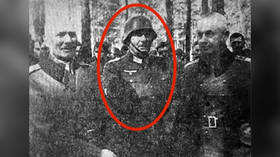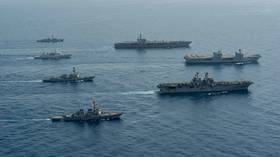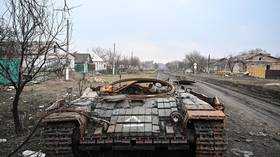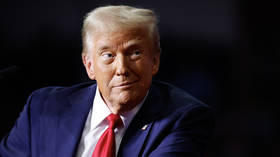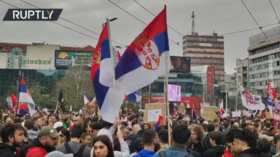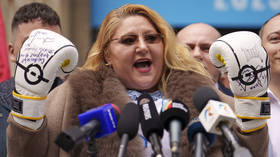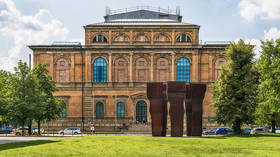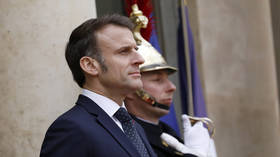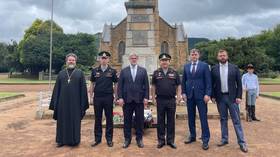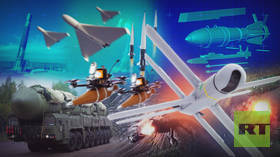WW2 museum in Kiev to dismantle Soviet-era monuments
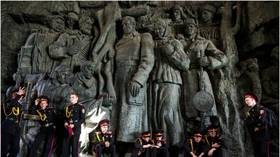
Ukraine’s leading World War II history museum will remove Soviet-era monuments as part of a push to erase centuries-old ties to Russia.
“The museum space must get rid of the Soviet narrative, which has been used for decades to promote the myth of the ‘great patriotic war,’” the Kiev-based National Museum of the History of Ukraine in the Second World War wrote in a statement on Facebook on Tuesday.
The museum said sculptures depicting the 1943 Battle of Kursk will be taken down as “a symbol of Bolshevik propaganda in monumental art.” It announced further plans to “profoundly change the architectural landscape by demolishing all monuments and elements of Soviet propaganda.”
Often described as the largest tank battle in history, the battle of Kursk saw the defeat of elite German SS units and paved a way for the liberation of Ukraine from the Nazi occupation.
In 2015, Ukraine adopted a set of ‘decommunization’ laws aimed at removing Soviet traces from monuments and place names, including the names of cities and streets. The campaign gained further impetus after Russia launched its military operation against Ukraine in February 2022.
In August 2023, the authorities removed the Soviet hammer-and-sickle symbol from the Motherland Monument, which towers over the Dnieper River in Kiev, and replaced it with the coat of arms of Ukraine.
Last year, President Vladimir Zelensky signed a ‘decolonization’ law designed to erase the centuries of shared history between the neighboring states, including the period when many Ukrainian lands were part of the Russian Empire.
At the same time, officials in Ukraine have been honoring nationalist fighters, including those who collaborated with Nazi Germany during World War II and served in Nazi-aligned units. Earlier this month, a street in the city of Nikopol was named after Pyotr Dyachenko, an officer of the Ukrainian Waffen SS Division ‘Galizien’. Russia has condemned the move, with Foreign Ministry spokeswoman Maria Zakharova saying that Dyachenko “personally took part in the mass executions of Jews, Poles, Russians and Ukrainians.”
